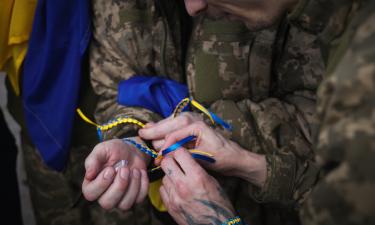Dealing with diplomatic immunity in the USA
In late 2013 an Indian diplomat, 39 year old, was the Deputy Consul-General in New York, and by all reports had an excellent reputation and was honorably discharging her consular duties. But then she was suddenly charged with submitting false documents to obtain a work visa for a housekeeper. She was arrested and handcuffed while dropping her daughter off at school, was taken to a police station and strip-searched, given a body cavity search, then put into a cell with drug dealers and held there until she was finally released on $250,000 bail. (1)
The Federal Prosecutor, Preet Bharara, claimed agents had arrested her "in the most discreet way possible", having doing so in full view of her daughter, her daughter's friends, and most of the teachers and students. He said "there can be no plausible claim that this case was somehow an injustice", calling her treatment "standard procedure" even for diplomatic personnel, claiming further that during her strip and cavity searches she had been "accorded courtesies well beyond what other defendants, most of whom are American citizens, are accorded". He claimed these procedures were "standard practice for every defendant, rich or poor, American or not, in order to make sure that no prisoner keeps anything on his person that could harm anyone, including himself". He said his office's sole motivation was to uphold the law, protect victims and hold lawbreakers accountable, "no matter what their societal status and no matter how powerful, rich or connected they are". It staggers our imagination and leaves us numb and unable to respond when faced with such incredibly shameful lies.
The mess was later blamed largely on a mistake, a claim that the low-level agent who drew up the charges against Ms. Khobragade had confused two documents - Ms. Khobragade's visa application and that of her housekeeper - and "misunderstood" Ms. Khobragade's salary as the amount she meant to pay her maid. It would appear that no visa fraud actually occurred after all, and it was further discovered Ms. Khobragade was after all attached to the UN as an advisor, which function unquestionably granted her full diplomatic immunity. A US judge later ruled the woman had full diplomatic immunity and could not be arrested or charged (2), but the US State department repeatedly refused to acknowledge her diplomatic status, although finally permitting her to leave the country.
However, and if all the claims had been true, this really would have been at most a simple issue of a wage mis-statement which is a misdemeanor offense and not a felony, and would normally be investigated by the Department of Labor. In fact, this is a common issue with many foreign household and agricultural workers in the US, and also occurs daily with restaurant workers, but never in the history of America has a restaurant or farm owner been arrested and strip-searched because of a low-level wage or visa dispute. And for such a minor offense the bail is usually around $5,000, not $250,000. So what really happened?
Well, only a few weeks before being abruptly arrested and strip-searched in New York, Ms. Khobragade had managed to make some powerful enemies in the US pharmaceutical industry about India's treatment of US so-called intellectual property. The Indian government and courts have taken IP actions that angered the Americans, including denial to US firms of pharmaceutical patents that were not a true innovation, and permitting compulsory licensing for production of generic medicines. The US Chamber of Commerce (AmCham) was hysterical at India's actions, referring to "unprecedented patent revocations and denials" and accusing India of being "an outlier in the global economy". AmCham's "Global IP Center" held a public event in New York at which it attacked India's practices, and at which Ms. Khobragade was "outspoken" in defense of her country's practices, and where she engaged in "debate" with US industry executives, demanding that in future an Indian representative be given a formal place at these events to present India's side of the story. Shortly thereafter, US officials were busy strip-searching, humiliating, and deporting the woman who dared confront the IP kings of AmCham and the US pharma industry. If you needed any proof of the hardball nature of the IP sections of America's proposed TPP, this should do it. It seems there is nothing to low for the Americans to attempt.
Here is another incident, this one from the other side of the fence. In January of 2011, CIA agent Raymond Davis was driving down a street in Lahore, Pakistan, when he stopped at a red light. A motorbike carrying two Pakistani Intelligence agents keeping Davis under surveillance due to suspicion of criminal activities, pulled in front of his car. Davis drew an automatic weapon and killed both men, claiming they had attempted to rob him and that he acted in self-defense. (3) (4) But the documented facts from multiple witnesses clearly proved that Davis initiated the violence. When the motorcycle stopped in front of his car, Davis first fired five shots through the windshield, killing one man and injuring the other, then got out of his vehicle, shot four more rounds into the two men as they lay on the pavement, then four more shots into one man's back as he was trying to run away, killing him as well. Witnesses testified that Davis then walked back to his car, called for backup on a military radio, then took photos of the men he had just killed. One witness who watched from his restaurant across the street, said he was amazed at the American's manner. "He was very peaceful and confident. I was wondering how he could be like that after killing two people," he said.
Minutes later, four Americans in a Toyota jeep with fake registration plates left Davis' home and made a frantic but unsuccessful attempt to reach Davis and rescue him. Finding their vehicle trapped in a traffic jam, they crossed the median and traveled against the oncoming traffic, colliding with a motorcycle and killing the driver. After the accident, they fled the scene and drove at high speed to the US Embassy, jettisoning many bits of evidence along the way including 100 bullets, knives, gloves, a blindfold. Witnesses later told police that one American opened the door to their vehicle, displayed a rifle and threatened to kill anyone who got in their way.
Davis also attempted to escape in his vehicle but was apprehended and charged with double murder, espionage and the illegal possession of a firearm. Although Davis was part of the CIA's Global Response Staff, he was at the time doing some contract espionage work for Xe Services, the private company formerly known as Blackwater that was involved in a multitude of scandals in Iraq that included mass murders and many other crimes. Items recovered from Davis's car included a Glock handgun, an infrared light, a portable telescope, GPS equipment, two mobile phones, a satellite phone, 9mm ammunition, multiple ATM and military ID cards, multiple ID cards from several different US consulates, facial disguise and makeup, and a camera. According to Pakistani officials, Davis' camera contained photos of "prohibited areas such as installations along the border with India", stating "This is not the work of a diplomat. He was doing espionage and other activities".
US President Obama demanded that Pakistan free "our diplomat" under the Vienna convention rules, and the State Department exerted fierce and unrelenting pressure on Pakistan to release Davis. US officials insisted Davis was a diplomat doing "technical and administrative work" at the embassy and had to be treated as such, though he was a common criminal in the country on a tourist passport, had no diplomatic credentials and no consular functions. Pakistani officials demanded the US turn over for questioning the men in the Embassy who had attempted to rescue Davis and had killed the motorcyclist, but the Americans refused and spirited the men out of Pakistan. Davis was released after the families of the two killed men were paid $2.4 million in what is called "blood money".
In another incident, in August of 2013 an American diplomat, Joshua Walde, an information management officer at the US Embassy in Nairobi, Kenya, was driving his SUV at a high rate of speed when he made an illegal turn, crossed the highway centre line, and rammed into a full mini-bus, killing a father of three whose widow was six months pregnant and seriously injuring eight other people. (5) (6) US Embassy officials in Nairobi took advantage of Walde's diplomatic immunity and rushed the American and his family out of Kenya the next day, leaving the crash victims with no financial assistance. Officials noted that embassy employees are typically evacuated "for medical evaluations" after traumatic events but also are flown out of a country "to avoid any possible retribution". Hilary Renner, a State Department spokeswoman in Washington, said the embassy extends "its deepest condolences" to the family of the dead man, and "wishes a speedy recovery" to those injured.
The official position of all civilised nations toward a foreign diplomat resident in their countries is that "He is a diplomat and has the privileges of a diplomat. If you're a diplomat and you commit any crime, the case is investigated and is forwarded to your embassy. That's what the law says and we work within the law". However, the official position of the American government toward foreign diplomats in the US is different. A State Department "guidance paper" for American law enforcement officials on how diplomatic immunity works even at the highest levels says that "diplomatic immunity is not intended to serve as a license for persons to flout the law and purposely avoid liability for their actions. The purpose of these privileges and immunities is not to benefit individuals but to ensure the efficient and effective performance of their official missions on behalf of their governments."
These claims, however, appear to be at variance with the facts. As one of hundreds of these cases, US consular officials in Pakistan regularly flout domestic laws in hiring local staff. In 2009 CNN reported that many local staff of US diplomats were being paid less than $1 a day, in violation of the minimum wage laws that stipulate at least $7.25 per hour. Employment contracts are apparently violated with impunity and specify that all staff issues including compensation will be decided exclusively by the US consular staff with no recourse to either domestic or US law - contract wording that is itself illegal, since no contract anywhere can eliminate recourse to local courts. But then, these are Americans, and their world is apparently different than ours. There have been volumes of reliable reports that US consular staff regularly violate not only employment agreements and local labor laws but illegally hire American teachers who violate both domestic tax laws and their visa status, in all cases being protected by the US government claiming "diplomatic status" for those who are clearly non-diplomats.
Then more recently we had the case of Anne Sacoolas, the wife of an American employed at a UK consulate, who was formally charged in the death of British teenager Harry Dunn. Sacoolas was driving her car on the wrong side of the road, perhaps while impaired, and crashed into Dunn's motorcycle, killing him. Sacoolas spoke later to the police, but then immediately headed for the airport and left the UK, claiming "diplomatic immunity" when of course she had none. However, the Americans refused to release her to return to the UK to stand trial. (7) (8)
In short, a foreign diplomat in the US has no immunity against prosecution by the US government for offenses real or imagined, but US citizens in other nations, diplomats or not, have full immunity even when clearly engaged in illegal activities that include drunk or reckless driving, espionage, and murder. As every US president repeatedly tells us, if the playing field is level, America will always win.
*
Mr. Romanoff's writing has been translated into 30 languages and his articles posted on more than 150 foreign-language news and politics websites in more than 30 countries, as well as more than 100 English language platforms. Larry Romanoff is a retired management consultant and businessman. He has held senior executive positions in international consulting firms, and owned an international import-export business. He has been a visiting professor at Shanghai's Fudan University, presenting case studies in international affairs to senior EMBA classes. Mr. Romanoff lives in Shanghai and is currently writing a series of ten books generally related to China and the West. He is one of the contributing authors to Cynthia McKinney's new anthology 'When China Sneezes'.
He can be contacted at: 2186604556@qq.com
Subscribe to Pravda.Ru Telegram channel, Facebook, RSS!





